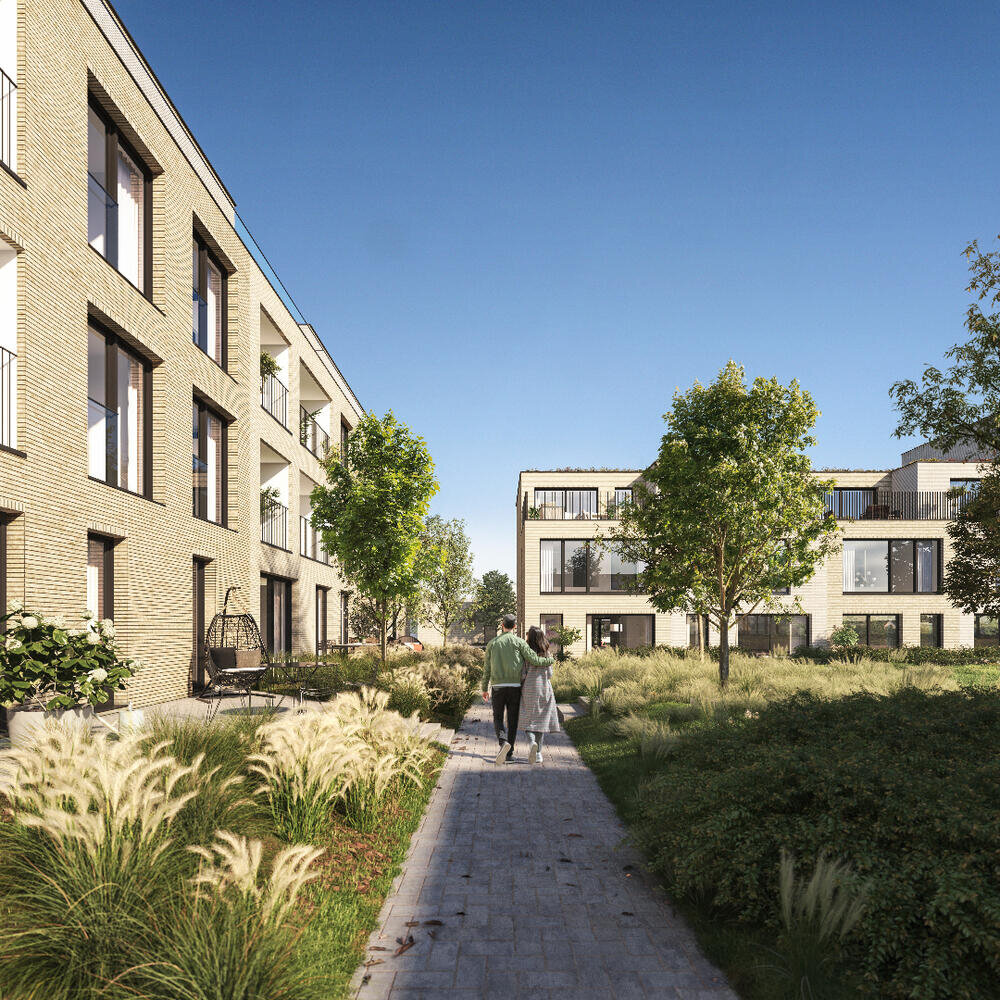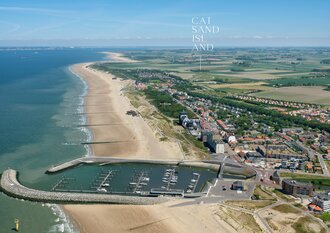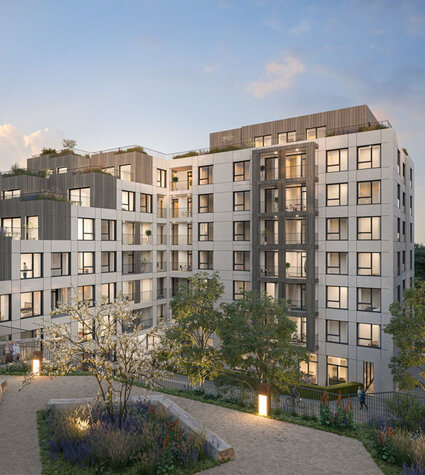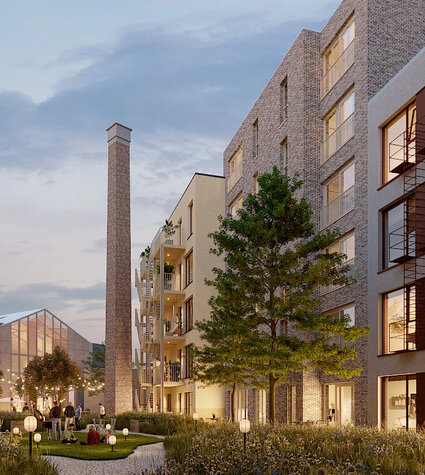
What to consider when purchasing a new-build home?
The time has come: you are about to purchase a new-build home. What should you take into account? What are the associated costs and is it a good investment? All these questions will be answered by our COO, Hanne Dekeukeleire.


Is a new-build home a smart investment?
Hanne: “The purchase of real estate is always a good investment. As land prices continue to rise in Flanders due to the limited amount of space, the value of new-build homes is also going up. However, we need to distinguish between turnkey new-builds and off-plan property developments.”
What is the difference?
Hanne: “Off-plan property developments are subject to the law of 9 July 1971 governing the construction and sale of housing, which is very buyer-friendly and offers multiple advantages. A one-year warranty period is applicable between the provisional acceptance and the final acceptance. During this period, the seller must rectify any hidden defects at their expense, for instance an installation that is not working properly. In addition, the seller remains liable for any serious deficiencies in the building such as its stability and waterproofing for 10 years under the law of 9 July 1971. So buying a property off-plan is certainly worth considering. If you buy a (new-build) home that has already been finished, you accept it “as is”. The seller can be held liable in principle, but this liability is strongly limited in the preliminary sales agreement. These restrictions cannot be incorporate into the contract in case of an off-plan property development pursuant to the law of 9 July 1971: the two-stage acceptance is embedded in the law.”

The preliminary sales agreement is an important document. What should you pay attention to as a buyer?
Hanne: “The contents of the preliminary sales agreement are largely defined by law and must meet strict standards. It includes important information such as the price, purchase date and the buyer’s and seller’s identity. The energy performance coefficient (EPC) must be mentioned as well as the inspection documents, the soil certificate, the planning certificate, the condition report and the property’s surface. Also important are the possible risks related to the building, e.g. whether it is located in a flood-prone area.
Especially if you’re buying a new-build home off plan, a good description is necessary to avoid any misunderstandings in the future. And if you’re buying a new-build flat, you should also consider the building’s rules of joint ownership.”
What do the rules of joint ownership entail?
Hanne: “This is a complete description of the property. How may flats does the building consist of, what are the communal areas, how are the costs allocated, etc.?
In case of off-plan property developments, the commencement date and duration of the works are also stated in the preliminary sales agreement. It should furthermore contain a reference to the construction permit to prove that permission for the works has been granted.
In case of off-plan property developments, you have a 15-day deadline to read and sign the preliminary sales agreement in order to avoid signing under pressure. There is no way back once the preliminary sales agreement has been signed; the sale has been concluded and both parties must comply with the contract.”
Are there any administrative matters that should be taken care of?
Hanne: “The post-intervention file is very important. It is a set of documents and information encompassing all construction plans. It includes the identity data of the architect and contractors who built or will build the home, the construction plans, the specifications listing all materials used and, if applicable, any technical data sheets. It is essential that you keep the post-intervention file if you wish to sell your property.”

What are the costs that should be taken into account when purchasing a new-build home?
Hanne: “As a rule, you need to pay 21% VAT on the asking price for a new-build home. Sometimes, the land and building are sold separately, in which case you pay registration fees on the price of the plot (normally 10% in Flanders, unless you are eligible for a reduced rate) and 21% VAT on the price of the building. This can mean a significant reduction of the cost. In addition, you need to take into account the registration fees on the deed of sale, notary fees, contribution to the common costs , the connection of utilities, etc.This is quite a lot, but everything is listed in the preliminary sales agreement and included in the total price to avoid any unpleasant surprises.
Since 1 January 2021, it has been allowed under certain circumstances to pay 6% VAT instead of 21% VAT on the purchase price of new-build homes. This way the government aims to encourage people to buy their first home.
Summary
- Make use of the liability after buying a new-build home off plan, if required.
- Read the preliminary sales agreement thoroughly; you have 15 days to do so.
- Take into account that the VAT rate for buying a new-build home is 21%.
- Be sure to keep the post-intervention file.
Recent articles











